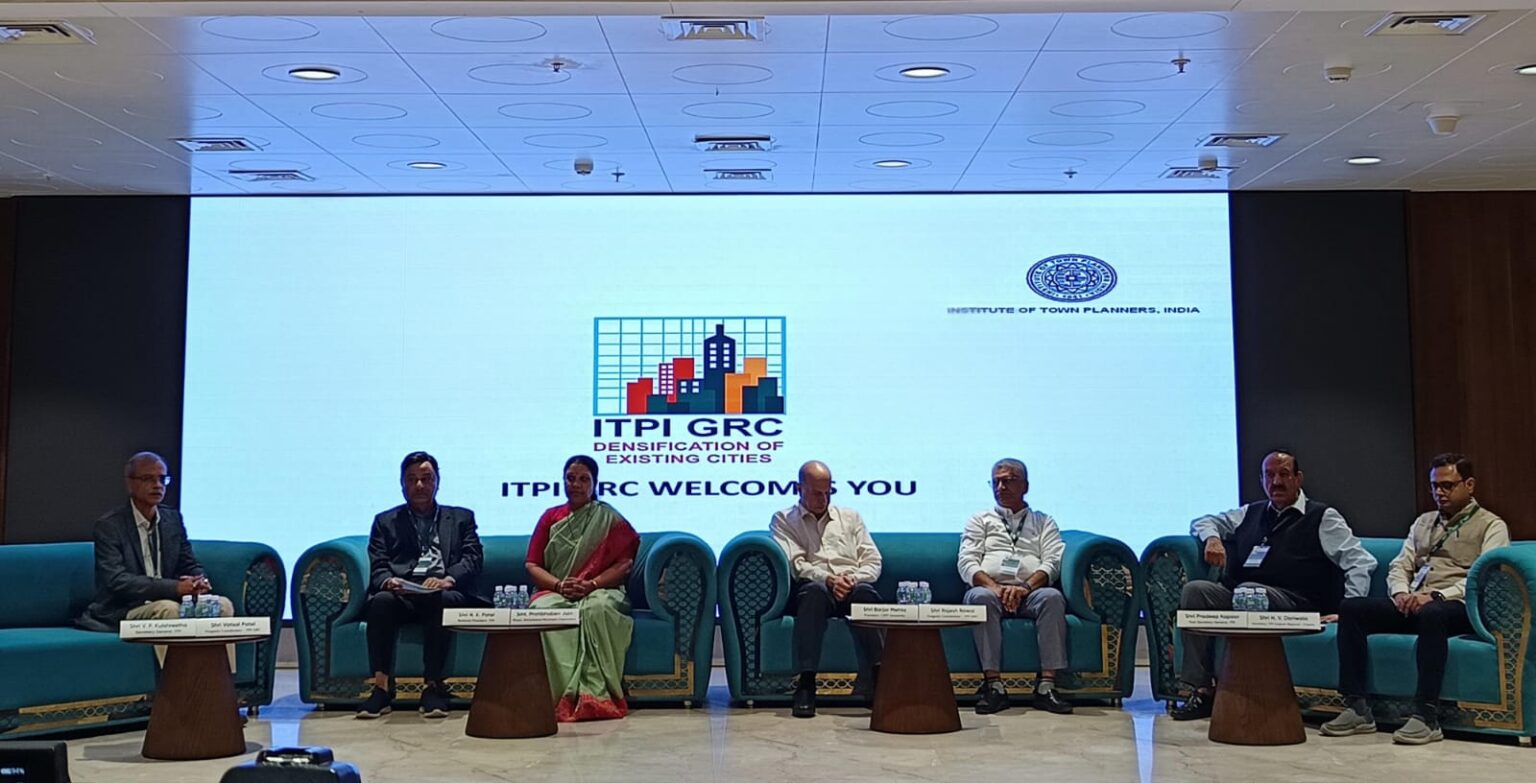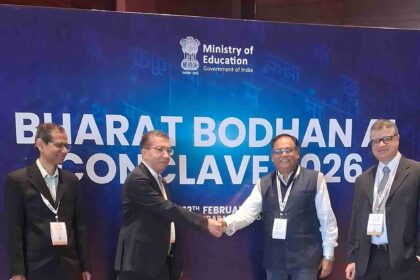Ahmedabad: The Gujarat Regional Chapter of the Institute of Town Planners, India (ITPI) hosted a high-level workshop on “Densification of Existing Cities: Opportunities & Challenges”, bringing together urban planners, government officials, academicians, and industry leaders from across the country. Organised as part of Urban Development Year 2025, declared by the Government of Gujarat, the event drew delegates from Rajasthan, Madhya Pradesh, Maharashtra, Goa, and the host state Gujarat. The day-long workshop focused on compact urban growth, policy innovations, digital planning tools, and global best practices in sustainable urban development.
Delivering the welcome address, NK Patel, National President of ITPI, underlined the urgent need for cities to adopt compact development models. “India has less than one acre of land per citizen. Urban land is even scarcer. China has 2.5 times more land per citizen than us. More than 50 Indian cities have a population of over one million. Brazen urbanisation poses serious challenges. Densification is not just desirable, but necessary. Expansion of cities increases costs and strains the infrastructure and public services. Densification can enable judicious utilisation of land, efficient infrastructure use, promote public transport, reduce carbon emissions, and strengthen social cohesion,” Mr. Patel said.
Mr. Patel also noted that the state and central governments have realised the importance of planned urban development and have launched a host of initiatives to promote planned development in the last few years.
Delivering the keynote address, CEPT University President Barjor Mehta noted the strategic importance of cities in India’s economic aspirations. “For decades, we called India a land of villages, but now it is widely recognised that cities are the engines of growth. No country in the world has developed without urbanising. We are a country of 1.4 billion people, and without cities, we will never be able to realise the true potential of our people. To move from a $4 trillion economy to $10 trillion, our cities must become dynamic, productive, and efficient,” he said. Mr. Mehta warned that cities that stagnate suffer an economic death and highlighted the need for cities to constantly renew themselves. He also called for planning laws to actively encourage the redevelopment of cities.
Ahmedabad Mayor and Guest of Honour Pratibha Jain noted the city’s growing stature on the global map. “Ahmedabad is a UNESCO World Heritage City and the cleanest large city in India. With the city gearing up to host the 2036 Olympics, infrastructure and amenities are being upgraded to international standards. The Gujarat government’s commitment to urbanisation, reflected in Urban Development Year 2025, will contribute significantly to India’s journey to becoming a developed nation,” she said.
Delivering the vote of thanks, Rajesh Rawal, Program Coordinator, ITPI Gujarat Chapter, observed that more than 1,000 town planning schemes have been made in Gujarat and noted that the town planning scheme for the upcoming high-speed rail corridor was prepared in just 8-9 months. He also emphasised the importance of such workshops in knowledge-sharing. The workshop also featured sessions on Policy & Regulations, Technology in Urban Planning, and Global Case Studies, with leading planners, academicians, and industry experts from organisations such as HCP Design, ESRI India, CEPT University, and Gujarat Technological University among the key speakers.
The experts discussed how compact, mixed-use redevelopment within existing neighbourhoods can help cities optimise infrastructure investment, improve access to jobs and markets, enhance public spaces, and create more inclusive and sustainable growth. The programme covered key themes such as regulatory frameworks, digital tools for evidence-based planning, best practices in urban renewal, and inclusive approaches to affordability, mobility, and public spaces. The deliberations aim to translate insights into actionable recommendations for policy, regulation, and pilot interventions to guide sustainable urban transformation.





